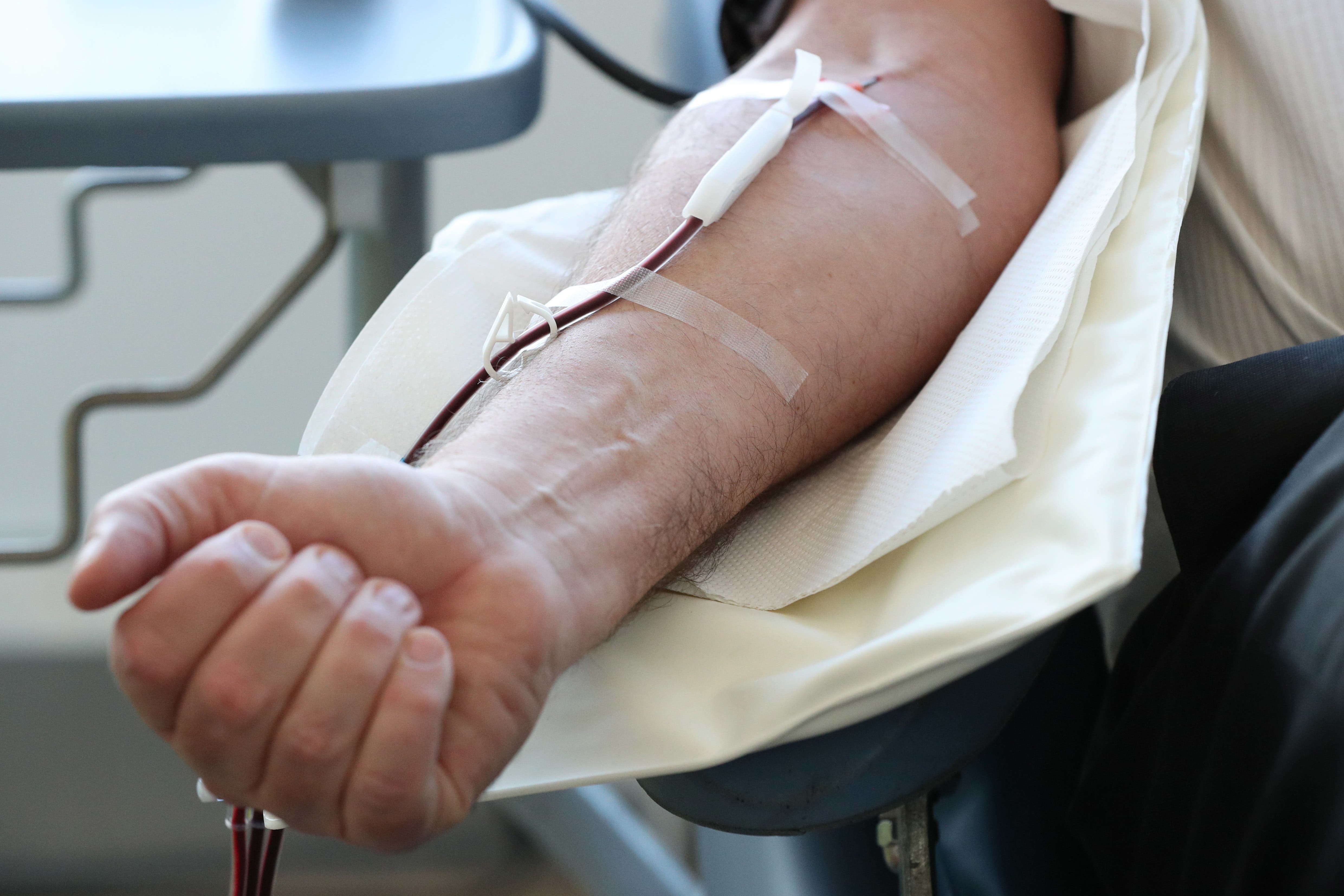England’s blood service is one of the safest in the world today – health leaders
Dr Gail Miflin, chief medical officer at NHS Blood and Transplant, said there were a number of checks in place to ensure the safety of blood products.

The blood service in England is “now one of the safest in the world,” NHS officials have said as the Infected Blood Inquiry has published its final report.
The probe, one of the largest ever in the UK, examined how people received contaminated blood and blood products in the 1970s through to the early 1990s.
Publication of the inquiry could cause concern among people in need of blood now, but NHS officials have described how things are “very different” today.
Donor screening and multiple checks and tests on blood mean that the UK blood service “is one of the safest in the world,” experts said.
Dr Gail Miflin, chief medical officer at NHS Blood and Transplant (NHSBT) – which is responsible for blood services in England and organ donation services across the UK – said that there are a number of checks in place now to ensure that blood is as safe as it can be.
“Today, things are very different, we have lots of different systems and processes in place,” she told the PA news agency.
She said the tests are “more modern” and the science “has moved on a long way” since the 1980s and 1990s.
Dr Miflin told PA: “What I would say to anyone, who’s worried about having a blood transfusion, is our systems and processes today are completely different.
“We are one of the safest blood services in the world today.”
She described how the organisation is “very cautious” and has strict rules in place as to who can and cannot donate blood.
For instance, people are not able to give blood or platelets – tiny cells in the blood which help it clot and stop bleeding – if they are HIV positive, have hepatitis B or C or have ever been treated for syphilis, or if they have ever injected drugs.
“When somebody comes to donate blood, they’ll be asked quite a few questions to check that it’s safe for them to donate,” she said.
“There are a huge number of rules about who can and can’t donate blood … we’re really very cautious about who we will let donate today.”
These checks include assessments to see whether it is safe for the person to donate for their own health and to make sure the blood they provide is safe for any potential recipient.
Sometimes additional “discretionary” checks are also applied – for instance if someone had travel history to a country where there are higher rates of a certain infection.
Once donated blood is collected, it is screened for several infections which can be transmitted through blood. Donations will be removed if scientists detect anything untoward.
“So, we do some tests on it every time – those sorts of things will include hepatitis C virus, hepatitis B virus, HIV virus, and syphilis,” Dr Miflin said.
“We’ll also do additional testing if a donor has been to an area where there’s a virus perhaps abroad. So for example, (if a donor has been to) the United States this summer we’ll test for West Nile virus.
“There are a lot of tests done on all blood donations nowadays.”
If it is found that a donor is positive for one of the infections scientists are looking out for, then they will be notified and suspended from the donor list – either permanently or within a set period of time depending on the infection or other issue.
NHS Blood and Transplant said that the likelihood of getting an infection from the blood transfusion is “low”, with no cases of HIV or hepatitis C linked to blood transfusion for more than two decades.
Officials estimate that the current risk of an infectious donation entering the UK blood supply due to a recently acquired infection is now less than one in 1.2 million donations for hepatitis B, less than one in seven million for HIV and less than one in 28 million for hepatitis C.
NHS Blood and Transplant did not form as an organisation until 2005 but it has apologised for the actions of blood services in the past.
“We’ve been working very closely with the inquiry to make sure we get to the truth for those infected and affected by the events of the past.
“We have also apologised for the part that blood services played in those events. And we’ve heard the stories that people have told, and they are really truly awful.
So I’d like to repeat the apology.”
Bookmark popover
Removed from bookmarks